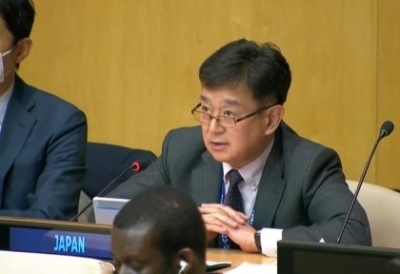紛争下、紛争後、人道的環境における精神保健・心理社会的支援へのアクセスの確保に関するアリア・フォーミュラ会合における大菅大使ステートメント

(As delivered)
Mr. Chair,
I thank Mexico for holding this important meeting. I also thank the briefers for their insights.
In crisis and post-crisis settings where human security is being severely threatened, the mental health of affected people, in particular the most vulnerable, needs special care just like the physical injuries. Japan learned this through its own post-natural disaster experiences. By investing more in mental health care, we can increase the resilience of individuals and communities against external shocks.
Japan has therefore been actively contributing to mental health and psychosocial support (MHPSS) in conflict and other emergency settings.
To support millions of displaced Afghans facing a dire humanitarian situation, Japan decided in October last year to provide emergency assistance of 65 million US dollars through UN agencies and ICRC. One important portion is allocated to UNHCR’s operation to improve the MHPSS to those who have experienced traumatic events prior to or during displacement.
For Palestinian refugees, Japan has supported integrating the MHPSS into the primary health care services of UNRWA since 2017. Now, all of the Agency’s health centres provide MHPSS care in Gaza, West Bank, Syria, Lebanon, and Jordan.
MHPSS constitutes an integral part of universal health coverage (UHC) which aims at protecting and promoting physical and mental well-being for everyone everywhere, including during humanitarian crises.
Lastly, we deplore that another dire humanitarian crisis surged due to the Russian aggression against Ukraine, causing extreme psychological burden that will weigh on the victims, including women and children, for many years to come. Japan will continue to lead global efforts for achieving UHC, including to help people affected by conflict and other humanitarian emergencies.
Thank you.
